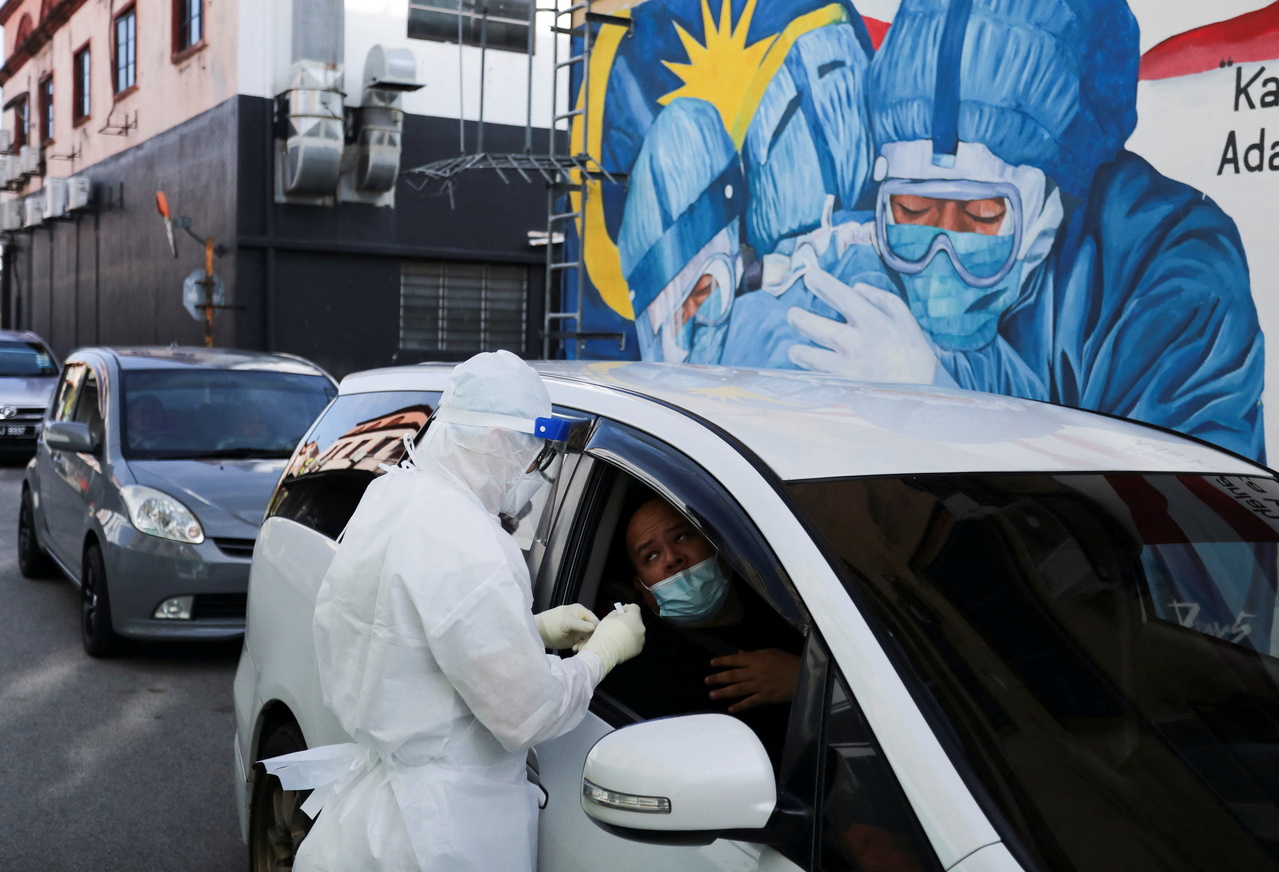Malaysia records almost 14,000 infections in likely new Covid-19 wave
Sign up now: Get insights on the biggest stories in Malaysia

The surge is believed to be fuelled by the more contagious Omicron variant.
PHOTO: REUTERS
KUALA LUMPUR - In what is likely the start of a new wave of the pandemic, Malaysia's Health Ministry reported 13,944 new Covid-19 cases on Tuesday (Feb 8), the highest since September last year.
The latest figure brought the cumulative caseload to 2,939,198, health director-general Noor Hisham Abdullah said on Twitter.
Selangor recorded the highest number of Covid-19 cases with 2,411, followed by Sabah (1,600), Kedah (1,448), Johor (1,369), Penang (693) and Kelantan (666).
Tuesday's tally is 2,910 more than that on Monday. The surge is believed to be fuelled by the more contagious Omicron variant.
However, Tan Sri Noor Hisham said the situation is "different" this time as many Malaysians have been inoculated.
"When daily cases hit over 10,000 during the Delta wave, the main indicators of Covid-19 were also high. At that time, many had not received the Covid-19 vaccines yet," he tweeted.
"However, a different situation is seen with the Omicron wave we are experiencing at the moment. Vaccines, including boosters, have helped reduce the hospitalisations, intensive care unit (ICU) admissions, and deaths," he said.
Despite logging the highest number of cases in 137 days, the hospitalisation rate stood at 1,253 on Tuesday, compared with 1,988 on July 13 last year during the peak of the Delta wave, according to the Health Ministry.
A total of 135 patients were admitted to the ICU on Tuesday, compared with 1,436 last year.
Daily deaths also saw a significant reduction, with only nine reported on Tuesday, compared with 193 last year.
To date, a total of 98 per cent of Malaysia's adult population has been fully inoculated, while 99.2 per cent have received at least one dose of the Covid-19 vaccine.
The country is currently pushing for vaccination among children aged between five and 11, in a bid to keep schools open as much as possible, amid rising concerns over school clusters.
It kicked off its vaccination drive for children last Thursday and as at Monday, a total of 41,393 have received their first dose.
It is targeting to have 70 per cent of school-going children receive their first dose within the next two months, and 50 per cent of the overall 3.6 million children from the age of five receive their first dose by the end of February.
Malaysia is administering the paediatric dose of the Pfizer-BioNTech Covid-19 vaccine to children in a two-dose regime with an eight-week interval.
In the past six months, the country recorded 26 Covid-19 deaths involving children between the ages of five and 11, out of 147,282 children infected.
Meanwhile, a government advisory council has suggested that Malaysia's borders be fully opened to all countries as early as March 1, without requiring travellers to undergo compulsory quarantine.
However, travellers who enter Malaysia will need to conduct a Covid-19 test before departure and when arriving in the country, said National Recovery Council chairman Muhyiddin Yassin on Tuesday.
Previously, the government had also assured that there will be no total lockdown of the economic and industrial sectors if Covid-19 cases were to increase significantly.
International Trade and Industry Ministry Minister Azmin Ali said the past closure had a huge impact on the economy, causing 826,000 people to lose their jobs in the first three months of the total lockdown in 2020.
"If the (total) lockdown were to continue, it will leave about five million Malaysians without any income. We can't do it anymore," he told reporters on Monday.


